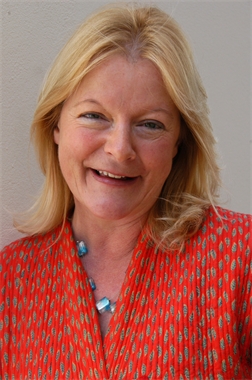We Interviewed a Soul Midwife to Discuss the Mind, Body & Soul Journey of Death
February 5th, 2019
Chances are that if you’re involved in the funeral profession, you’ll have come across Soul Midwives by now.
Also known as End-Of-Life Doulas, this movement is becoming a momentous force in the funeral service industry.
As we feel the force increasing, we’re curious about what Soul Midwives and Death Doulas can offer the funeral profession in terms of changing the conversations we have about death with families.
I had a chance to sit down with Felicity Warner, the founder of Soul Midwives and the Soul Midwives School recently to talk about what she does, and how she sees funeral service and Soul Midwives working together.
Here’s what she had to say about death, life, and everything in between:
What is a Soul Midwife?
Soul Midwives are a group of therapists combining holistic techniques and spiritual support for the dying. We work alongside medical teams within hospices, hospitals, care homes and also within the community if families are planning a home death for a loved one.
Being a Soul Midwife is an exciting and enriching vocation and we are all extremely passionate about helping people to achieve a peaceful death in whatever care setting.
Our holistic work involves using simple, non-invasive, gentle therapies such as soothing touch, meditation, sound healing, creative visualisations, essential oils and breathing techniques. Our spiritual work addresses the psycho-spiritual needs of the dying person, focusing on deep listening, mindfulness and companionship .
We are completely non-denominational and work with the beliefs/ideas and needs of the of the dying person.
Why did you choose to become a Soul Midwife? What inspired you?
I developed the concept of Soul Midwives over 20 years ago through my own involvement with six young women who were dying with breast cancer. I was a medical journalist and spent a great deal of time with them. Through my work with them, we had many deep conversations about how it felt to be dying, as well as the effect it had on those around them, including their own deep feelings, reflections and fears.
None of these dying women knew each other, but their experiences were very similar. They spoke of isolation, losing their identity, lack of touch other than for treatments, and of being a part of a disempowering medical process.
All I could do was listen deeply, be present, hold their hand, rub a sore shoulder and offer lavender oil from the depths of my handbag. I just wanted to help them relax, and through it all, remain as calm as I could be.
Tell us about your transition from a medical journalist to a Soul Midwife?
My work from journalist to Soul Midwife happened quite organically. After being invited to support the deaths of three of these women, and then volunteering at our local hospice where I sat with anyone who was dying and had no family, I began to see that bringing kindness, time and human touch to the bedside was powerful medicine.
Staff noticed a difference in patients who I sat with. They appeared calmer, more serene, more at peace. The hospice staff were intrigued by what I did and asked me to run a workshop for staff to show them what I was doing.
What did you teach in your Soul Midwifery workshops?
None of what I taught was rocket science. All of my ideas centered around old fashioned TLC (tender loving care). I was doing more hands-on work than the other volunteers and spending more time individually with patients, building rapport and trust.
I intuitively offered simple touch, re-assurance, listening, soothing, kindness and tuning into the dying person on a deep and authentic level. I made them feel as if they were the most important person in the world while I was with them. I used to think “what if this was my mother, or my child in this bed?” It was then I thought of these questions when I was able to make the biggest difference.
How did you begin working with hospice and palliative care workers as a Soul Midwife?
As my work gained momentum, more hospices asked me to train staff. Leading up to this moment, I have now written three books on my ideas and techniques. I also campaign for awareness of holistic care in the death industry. And over the last 20 years, I have trained over 600 soul midwives. I run a small school in Dorset, England, dedicated to teaching high quality Soul Midwifery skills and other end-of-life associated courses.
Last year I was awarded The National Council For Palliative Care End-of-Life Care Champion 2017 titles. Soul Midwifery has now entered a new and exciting era with recognition from the UK’s top clinicians and policy makers.
You mentioned that you see dying as a sacred event. Tell us about more about this.
In modern palliative care, we are great with bodies, good with minds, but un-easy when it comes to the soul. Meeting someone at the very depths of their being is a powerful and sacred space to share. A Soul Midwife develops a deep trust and connection which makes a huge difference to the dying person.
We see dying is an intimate and sacred process. It is best done in it’s own time, in a tranquil and peaceful way. And it should, at best, be a final honouring of a life well lived.
How do you treat death differently as a Soul Midwife?
We instinctively feel that a person should be left for a period of three days while the final transition, (separation of soul and spirit) can take place. This is a subtle but important sacred event.
At this time we will “hold space” for the grieving family, supporting them through a very tender time. This really has an impact on how people grieve and enables them to be more involved with the death (if they choose to do that).
Sometimes we will anoint the body with Sacred Oils such as Sandalwood, Rose or Myrrh. We may say prayers or blessings, or sing. Every family we work with is different.
Do you work with funeral directors as a Soul Midwife?
Increasingly, we are working with funeral directors. One of the reasons is that people are very keen to see a line of continuous care for their loved ones… right through to the funeral and beyond.
Recently I worked with a family who were very keen to keep their father at home for three days, allowing him to “rest” with the family around him. The funeral director was fantastic; we worked with him very closely. He helped in every way that he could, popping in and keeping a very close eye and suggesting exactly the right moment for the body to be removed and with great delicacy and tenderness.
There was another lady I worked with who was in her 40’s. She was absolutely terrified of dying and even more terrified of being “taken away” to a mortuary. She had advanced breast cancer and knew that her time was very short.
So, we invited the funeral directors to tea so that she could meet them. They came, dressed in jeans and wooly jumpers. They explained that they could keep her at home by bringing a refrigerated base to her home. This comforted her. And after she died, they placed her on it with her own duvet cover and pillows. It was an amazing few days. She was so pleased to have a Soul Midwife who could facilitate all this for her.
What do you think funeral service could learn from your work?
I think that funeral service has been curious about us and our work. We have a mutual understanding that we are both able to support families when they are extremely stressed and vulnerable. I think they like the way that we are often able to “think outside the box”. NO pun intended!!!!
What do your families or clients ask you for, support wise?
They appreciate the continuity, human friendship and tenderness that we offer, as well as the time that we are able to offer them. There can be so many clinical care workers around, coming and going. If we are able to be involved, we become one solid, calm and trusted friend for the family.

About Felicity Warner
Felicity Warner is the founder of Soul Midwives a pioneering movement in modern holistic palliative care. She runs the Soul Midwives School in Dorset and has trained over 1000 Soul Midwives who work in Hospices, care homes, hospitals and the community and is the author of A Safe Journey Home and The Soul Midwives Handbook and most recently Sacred Oils: 20 Precious Oils to Heal Spirit and Soul.
In the last 12 months, she was honoured for her work by the National Council for Palliative Care and made End of Life Care Champion of the year 2017 and awarded End of Life Doula of the Year by the UK Good Funeral Awards. For more information please visit www.soulmidwives.co.uk.


[…] post We Interviewed a Soul Midwife to Discuss the Mind, Body & Soul Journey of Death appeared first on funeralOne […]
[…] post We Interviewed a Soul Midwife to Discuss the Mind, Body & Soul Journey of Death appeared first on funeralOne […]
[…] https://blog.funeralone.com/industry-trends/soul-midwife/ […]
[…] can sense your families needs without them having to tell you. And you’re ready to meet […]
[…] Soul midwives might be a new term, but it certainly is an old concept. The function of helping others comfortably pass on, fulfilling their emotional, physical, mental and spiritual needs as they prepare for their journey on is ancient. For millennia these practices have been used, and that’s why we’re happy to see soul midwives making waves in the funeral profession. If you don’t already have a soul midwife friend in town, we highly recommend making this valuable connection for your funeral business. […]
[…] Read up on it: We Interviewed a Soul Midwife to Discuss the Mind, Body & […]
[…] because there are Death Doulas, and human re-composting programs happening that could be considered to be radical by some, […]
[…] It’s totally normal to feel this way, and that’s why there are Death Doulas or Soul Midwives who are hired to care for you in your last moments the way a loved one would or […]
[…] could even host other death professionals such as embalmers, Death Doulas & Soul Midwives, Grief Therapists, and so much more. Again, by collaborating with other professionals in your […]